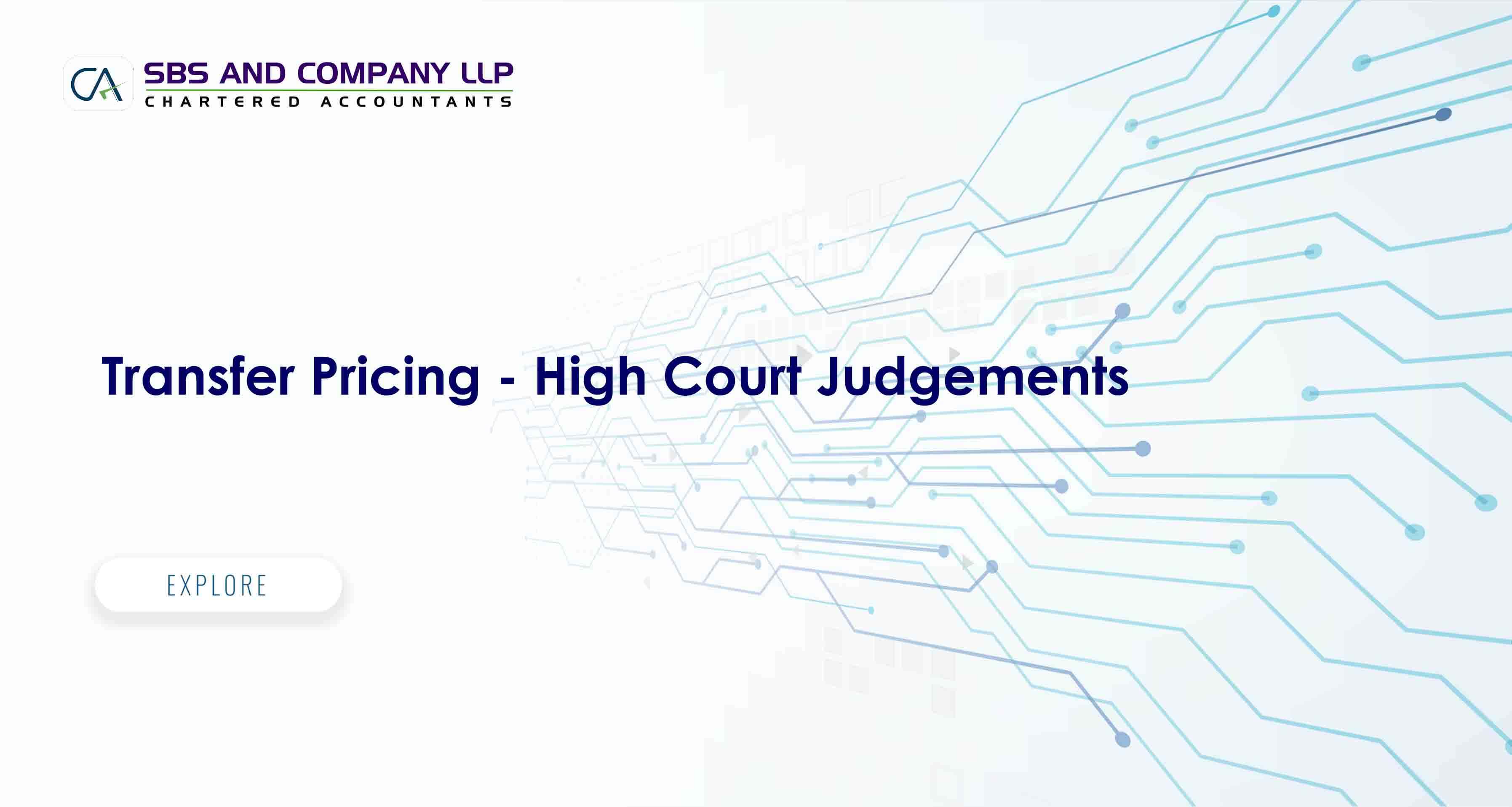In this bulletin, we bring to our readers, certain important and significant judicial precedents pronounced by various high courts which would determine the future course of Transfer Pricing litigation. We wish the readers shall be benefited from the following judgments.
- Pr CIT v Ameriprise India (P)Ltd –Delhi High Court
The Court upheld Tribunal’s order considering foreign exchange gain/loss arising out of revenue transactions(i.e. ITES services) as an item of operating revenue/cost.
- Toluna India Pvt Ltd – Delhi High Court
HC upholds ITAT’s exclusion of 4 comparables viz. Infosys Technologies Ltd, KALS Information Systems Ltd, Tata Elxsi Ltd and Wipro Ltd for assessee providing software development and marketing support services to AE for AY 2008-09 and 2009-10; Notes that ITAT, while directing AO to exclude these comparables, had followed order passed in assessee’s own case for AY 2007-08 and such order did not appear to have been challenged by Revenue; On merits, HC holds that “given the scale of operations of the above entities, their exclusion from the list of comparables for the purposes of determination of ALP appears justified”; Accordingly, HC holds that no substantial question of law arises and dismisses Revenue’s appeal.
- Yum Restaurants(India) Pvt Ltd v ITO – Delhi High Court
The Court held that the TPO was incorrect in presuming the existence of an international transaction between the assessee and its AEs, on the basis that the assessee allegedly made a contribution towards AMP expenditure to its wholly owned Indian subsidiary on behalf of its AEs and the fact that the assessee had incurred a loss in the relevant segment and therefore concluding that it was not adequately compensated by the AEs for the creation of marketing intangibles. The Court held that there would be a need for a detailed examination of the operating agreement between the assessee, its Indian subsidiary and the AEs to ascertain if any part of the AMP expenses was for the purpose of creating marketing intangibles for the AE of the assessee and only after an international transaction between the assessee and its AE in relation to AMP expenses was shown to exist, could the question of determining ALP of such international transactions arise.
- CIT v Thyssen Krupp IndustriesIndia (P)Ltd – Bombay High Court
The Court held that where a substantial part of revenue of a comparable company in execution of turnkey projects arose out of executing projects of public sector undertakings, it could not be considered to be comparable to assessee-company providing turnkey services to its AE as contracts between Public Sector undertakings were not driven by profit motive alone but other consideration also weigh in such as discharge of social obligations etc.
- CIT v Goldstar Jewellery Design Pvt Ltd – Bombay High Court
The Court held that the TPO was unjustified in applying the base of capital employed under the TNMM method without segregating the capital employed in respect of AE and Non-AE transactions. Further, it held that where the assessee entered into both international as well as domestic transactions, the Tribunal was justified in restricting the adjustment only to international transactions.
- CIT v ITC Infotech India Ltd – Calcutta High Court
The Court held that where in respect of marketing and administrative services provided to third party customers, the assessee adopted a revenue sharing model whereby it kept 75 percent of the revenue and paid 25 percent to its subsidiaries who provided support services for transactions where the customers directly contracted with either the assessee or its subsidiaries, the TPO was incorrect in determining the remuneration to subsidiaries at 15 percent, where the customers directly contracted with the assessee, since there was no difference in the functions performed by either the assessee or its subsidiaries as compared to cases where customers directly contracted with the subsidiaries.
- Honda Cars India Ltd v DCIT – Delhi High Court
The Court held that where the Petitioner was not a foreign company and the TPO did not propose any variation to income returned by petitioner, neither of two conditions of section 144C of the Act were satisfied and therefore the petitioner was not an ‘eligible assessee’. Consequently, the Assessing Officer was not competent to pass draft assessment order under section 144C(1) of the Act and therefore the said draft assessment order was quashed.
- International Air Transport Association – Bombay High Court
The Court set aside the final assessment order passed under section 143(3) of the Act without passing a draft assessment order as mandated by Section 144C(1) of the Act which applied to the assessee. It observed that the DRP did not entertain the assessee’s objections absent the draft assessment order and therefore the rights made available to the assessee under section 144C of the Act were rendered futile by directly passing final order under section 143(3) of the Act.
Concluding Remarks:
Irrespective of the fact that most of the issues in Transfer Pricing are attaining finality through the judgements of the Tribunals, there are still certain conflicting views on various issues which are being cleared by the High Courts. However, the Tribunals and the Transfer Pricing Officers have been following their respective views stating that some of these High Court Judgements are not Jurisdictional High Courts pronouncements.



